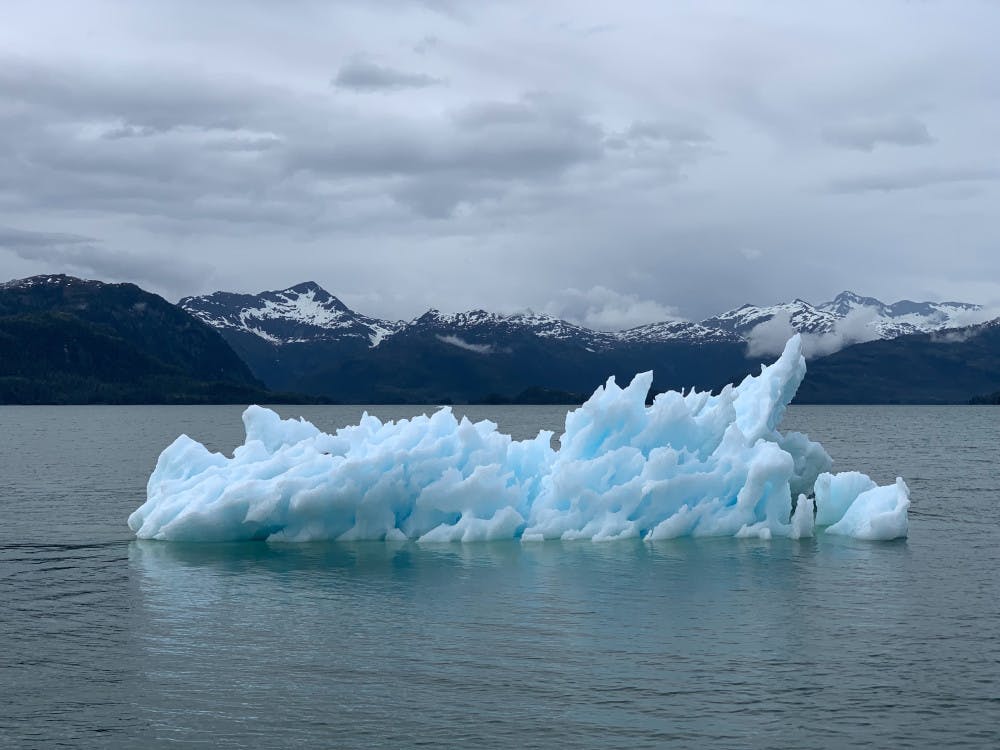By: Alex Knutte
On Thursday, Feb. 11 and Friday, Feb. 12th, Miami University welcomed Dr. Jonathan Overpeck, the Dean of the University of Michigan school for the Environment and Sustainability, to speak virtually to students, staff and alumni. Overpeck was this year’s speaker for the annual Dr. Gene and Carol Willeke Frontiers in Environmental Science Distinguished Lecture put on by Miami’s Institute for the Environment and Sustainability.
To say Dr. Overpeck has an impressive background would be an understatement. Throughout his career, he has been a part of several committees, written over 220 publications, been involved with research and has won a plethora of awards. Most notably, Dr. Overpeck won the Nobel Peace Prize in 2007 for his contribution in leadership as a Coordinating Lead Author of the Fourth Assessment of the Intergovernmental Panel on Climate Change (IPCC). Dr. Overpeck gave two talks to the Miami community, “Climate Change: The challenge and opportunity” as well as “Climate change: Hydroclimate and the aridification of North America.”
It is no secret that humans are causing the earth to warm by an increased use of fossil fuels, specifically coal, oil, and gas. In his talks, Overpeck stressed the fact that warming is the root cause of most environmental problems and that warming amplifies those environmental problems. The increase of warming has caused an intensified hydrologic cycle, which is a much bigger crisis than people think, Overpeck asserted.
The clausius-clapeyron relationship predicts that the water holding capacity of the atmosphere increases by about seven percent for every one degree Celsius rise in temperature. This means that frequent, longer and more severe droughts can and will occur. An intensified hydrological cycle can also yield an increase in average precipitation, extreme rainfall and flooding.
The globe is warming almost everywhere, and the five warmest years on record have occurred in the last five years. Between 2000 and 2010, the upper Missouri River Basin experienced a drought in one of the driest periods it’s seen in the last 1200 years. Overpeck stated that what is really happening is aridification, or the gradual change of a region from a wetter to a drier climate, not just in the west but the midwest and other regions of the world as well. Overpeck used the Colorado River as an example. Climate change is drying up the Colorado River which is putting millions of people at risk for severe water shortages. The Colorado River Basin includes seven states, gives water to more than 40 million people, is a fast growing region with many large cities and is big in agriculture production.
Overpeck also spoke on the disappearance of Lake Powell and Lake Mead. The two were nearly full in 1999, but currently Powell is 39 percent full and Mead is 41 percent full as of Feb 11, 2021. Megadrought is a global issue. So, where will we get the water?
As aquifers dry up, where will the southwest and high plains get their water in the future? Overpeck said that drought buffers have never been more important than they are now. We need to save groundwater for inevitable hard, dry times and replenish the groundwater during wet times. He also said that river-fed agriculture can furthermore serve as a critical buffer. Unfortunately, water security risks are rising rapidly around the planet due to climate change and unsustainable river and groundwater use. However, it's not just about the water. Global warming is also baking our soils.
Severe wildfire is increasing with warming, Overpeck explained. With the continued use of high fossil fuel emissions, prolonged drought and consecutive dry days are inevitable by the end of the century. Overpeck states that too much climate change endangers midwest farms, forests and aquatic systems. The consequences of climate change are longer and hotter heat waves, more frequent and severe drought, and water stressed agriculture, forests, lakes, and rivers.
Despite all of the problems that Dr. Overpeck talked about, he stated that there is hope. There is hope if we can thoroughly understand the biggest problems and work towards finding ways to solve them. His biggest worry, however, is that we are not stopping climate change fast enough to avoid planetary tipping points.
Overall, I am very honored to have had the opportunity to listen to such an inspiring leader in the field. I am beyond grateful that Dr. Overpeck took the time to share what he has learned throughout his career that can be used to propel climate action even further.
Photos courtesy of Unsplash.




